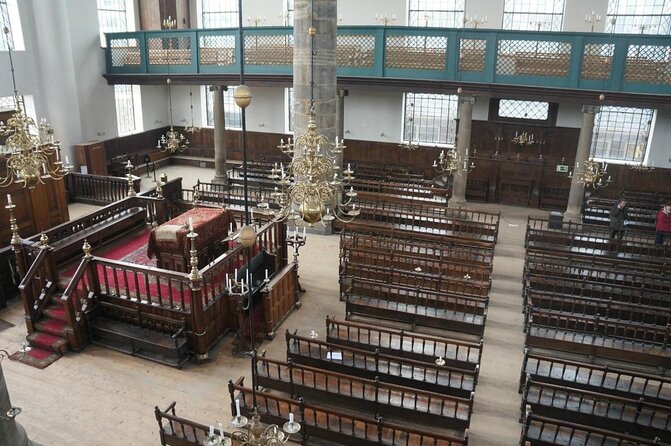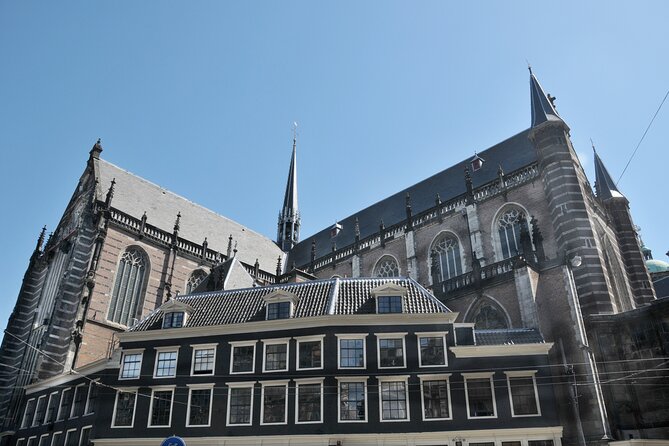The diary of Anne Frank has captivated readers worldwide, offering a poignant glimpse into the life of a young Jewish girl during the horrors of the Holocaust. But beyond the personal narrative, historians and experts have uncovered the true story behind this remarkable document – one that not only preserves a vital historical account but also serves as a powerful tool for education and reflection on the enduring themes of human rights, resilience, and the fragility of life. By delving into the diary’s origins, context, and lasting impact, we gain a deeper understanding of this remarkable girl’s experience and the lasting legacy she left behind.
About Your Stay

- The diary of Anne Frank serves as a powerful first-hand account of the Holocaust and the human struggle for survival during the Nazi regime.
- Historians and scholars have extensively studied the diary to understand the historical context, Anne’s personal experiences, and the broader impact of her story.
- Preserving the original diary manuscript and making it accessible to the public through the Anne Frank House Museum are critical efforts to honor Anne’s legacy.
- Themes of resilience, hope, and the human spirit permeate the diary, making it an enduring educational tool that resonates across generations.
- Experts analyze the literary merits, psychological insights, and historical significance of the diary, deepening our understanding of Anne Frank’s life and the tragedy of the Holocaust.
Anne Frank’s Early Life

Anne Frank was born on June 12, 1929, in Frankfurt, Germany. She lived with her parents, Otto and Edith, and her older sister, Margot.
In 1933, the family moved to Amsterdam, Netherlands, to escape the growing antisemitism in Germany under Nazi rule. Anne and her family lived a relatively normal life in Amsterdam until the German invasion of the Netherlands in 1940.
As the situation for Jews became increasingly dangerous, the Frank family went into hiding in 1942, eventually being discovered and sent to Nazi concentration camps, where Anne perished.
You can also read our reviews of more tours and experiences in Amsterdam.
The Rise of Nazism

The rise of Nazism in Germany during the 1930s set the stage for the tragic events that would later impact Anne Frank’s life.
Adolf Hitler and the Nazi party rose to power, spreading an ideology of anti-Semitism and promoting the persecution of Jews.
As the Nazis consolidated their control, they enacted discriminatory laws, stripped Jews of their rights, and initiated a campaign of terror and violence.
This climate of growing intolerance and oppression laid the foundation for the horrors of the Holocaust, which would ultimately lead to the tragic fate of Anne Frank and millions of other Jews across Europe.
Hiding in the Secret Annex

Amidst the escalating persecution of Jews under Nazi rule, Anne and her family made the perilous decision to go into hiding.
In 1942, they took refuge in the "Secret Annex" – a hidden apartment above Anne’s father’s office in Amsterdam.
For two years, the Franks and four others lived in constant fear, confined to the cramped quarters and relying on a handful of trusted helpers to bring them food and supplies.
Despite the grim circumstances, Anne documented her experiences in her now-famous diary, offering a deeply personal account of life in hiding and the universal human desire for freedom, connection, and hope in the face of unimaginable adversity.
Discovery and Deportation
On August 4, 1944, the Gestapo raided the secret hiding place, arresting the Franks and their companions.
Following the devastating discovery, the eight inhabitants were deported to various concentration camps.
Anne and her sister Margot were sent to Bergen-Belsen, where they both perished just weeks before the camp’s liberation.
The hideout was betrayed, though the identity of the informant remains unknown to this day.
The Franks’ capture marked the tragic end of their two-year concealment:
- Gestapo raid on the secret annex
- Deportation to concentration camps
- Anne and Margot’s deaths at Bergen-Belsen
- Betrayal by an unidentified informant
- End of two-year hiding in the annex
The Lasting Legacy
Anne Frank’s remarkable diary has endured as a testament to the human spirit, transcending its initial purpose as a personal account to become a global symbol of resilience and hope.
Decades after its publication, the diary continues to captivate readers, inspiring reflections on the horrors of the Holocaust and the triumph of the human will.
Its themes of courage, perseverance, and the search for meaning in the face of adversity have resonated across generations, making it a cherished work of literature and a powerful educational tool.
The enduring legacy of Anne Frank’s diary serves as a reminder of the profound impact a single voice can have in shaping our understanding of the past and inspiring a more just future.
- Day Trip to Zaanse Schans, Edam, Volendam and Marken From Amsterdam
- Amsterdam Evening Canal Cruise With Live Guide and Onboard Bar
- Amsterdam Canal Cruise in Open Boat With Local Skipper-Guide
- Guided Bike Tour of Amsterdams Highlights and Hidden Gems
- Introductory Walking Tour in Amsterdam
- Amsterdam Canal Cruise With Live Guide and Unlimited Drinks
Preserving the Diary
The Anne Frank House Museum has diligently preserved the renowned diary, ensuring its continued accessibility and impact. Over the years, they’ve undertaken meticulous preservation efforts to safeguard this historical treasure:
- Digitizing the diary for online access
- Maintaining the original manuscript in climate-controlled conditions
- Conducting regular inspections and conservation treatments
- Investing in advanced preservation technologies
- Educating visitors on the diary’s significance and fragility
These measures have allowed millions to engage with Anne Frank’s powerful words, inspiring new generations to reflect on the past and work towards a more just future.
The Anne Frank House’s stewardship ensures this invaluable document will continue to resonate for centuries to come.
Expert Insights

Numerous experts have provided invaluable insights into the enduring significance of Anne Frank’s diary. Scholars have analyzed the diary’s literary merits, its historical context, and its impact on global consciousness.
Psychologists have examined the diary’s exploration of adolescent development and the human condition. Historians have highlighted the diary’s role in preserving the memory of the Holocaust. Curators have discussed the challenges of maintaining and exhibiting this fragile document.
Collectively, these expert perspectives have deepened our understanding of Anne Frank’s legacy and the timeless lessons her diary offers. The diary’s power lies in its ability to humanize the devastating events of the past and inspire hope for a more just future.
Questions About Staying Here
What Are the Tour Options and Duration?
The tour offers various options ranging from 2 to 5 hours, with the number of attractions varying by the selected option. Private transport with pickup and drop-off is available for the 2, 3, 4, and 5-hour options.
What Is the Meeting and Pickup Information?
The meeting point is Huis van de Tijd, Nieuwe Herengracht 20, 1018 DP Amsterdam. Guests can choose to request pickup or go directly to the meeting point. The tour ends back at the original meeting location.
Is the Tour Accessible for Wheelchair and Strollers?
The tour is wheelchair and stroller accessible. According to the details, the activity is near public transportation and infants must sit on laps during the tour.
What Is the Pricing and Cancellation Policy?
The tour costs start from $214.84 per person, with prices varying based on group size. There’s free cancellation up to 24 hours before the tour, and a Reserve Now and Pay Later option is available.
How Are Large Groups Accommodated During the Tour?
Large groups are split into multiple vehicles, with 1 guide for 1-15 people, 2 guides for 16-30, and 3 guides for 31-45 people, ensuring a personalized experience and allowing the tour to accommodate a range of group sizes.
Worth The Stay
Anne Frank’s diary has become a powerful testament to the resilience of the human spirit in the face of unimaginable adversity. Scholars emphasize its historical significance, highlighting how it preserves the personal experiences of Jews during the Holocaust and serves as an educational tool to foster discussions on human rights and tolerance. The diary’s lasting legacy continues to inspire and enlighten people worldwide.
More Tour Reviews in Amsterdam
- Giethoorn Private Tour, Comfortable & Luxurious From Amsterdam!
- Amsterdam Fitness Pass
- Royal Engagement Experience at Royal Coster Diamonds in Amsterdam
- Northern Highlights Tour: Visit 4 Magnificent Places From Amsterdam
- Frisian Day Trip From Amsterdam: Tulips, Windmills and Dykes
- Discover the LGBT Side of Amsterdam With a Local
Not for you? Here's more things to do in Amsterdam we have recnetly reviewed
- 5 Best Craft Beer Tours And Tastings In Amsterdam
- 8 Best Canoe And Kayak Experiences In Amsterdam
- 4 Best Christmas Experiences In Amsterdam
- 18 Best Dining Experiences In Amsterdam
- 8 Best Full-Day Tours In Amsterdam
- 2 Best 3 Day Tours In Amsterdam
- 3 Best BBQ Experiences In Amsterdam
- 20 Best Photography Experiences In Amsterdam
- 7 Best Coffee Tours And Tastings In Amsterdam
- 16 Best Dinner Tours In Amsterdam
- 25 Best Cruises And Boat Tours In Amsterdam
- 9 Best Lunch Experiences In Amsterdam
